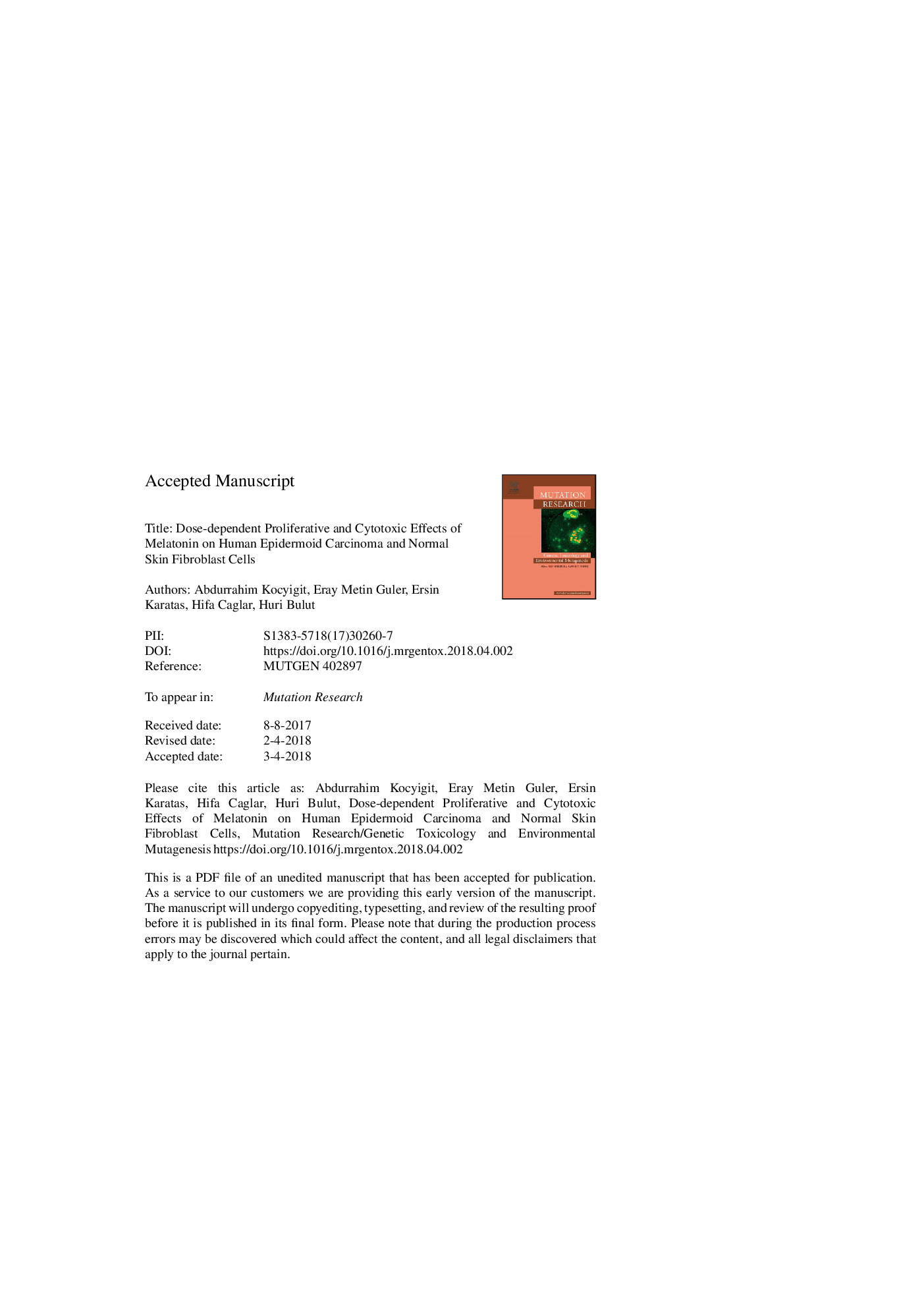| Article ID | Journal | Published Year | Pages | File Type |
|---|---|---|---|---|
| 8456203 | Mutation Research/Genetic Toxicology and Environmental Mutagenesis | 2018 | 33 Pages |
Abstract
New in vitro studies have demonstrated that N-acetyl-5-methoxytryptamine (Melatonin) has cytotoxic and apoptotic effects on various cell types although most of the previous investigations document that it is a potent antioxidant. However, the precise molecular mechanism(s) of its effects are not fully elucidated. In this study, we examined dose-dependent cytotoxic, genotoxic, apoptotic and reactive oxygen species (ROS) generating effects of melatonin in human epidermoid carcinoma cells (A-431) and human normal skin fibroblastic cells (CCD-1079Sk). The cells were incubated with different doses of melatonin (0.031-5â¯mM) for 24â¯h. Cell viability was assessed based on luminometric ATP cell viability assay. Intracellular ROS was detected using 2,7-dichlorodihydrofluorescein-diacetate (H2DCF-DA) fluorescent probes. Genotoxicity was evaluated by alkaline single cell gel electrophoresis assay (Comet Assay). Apoptosis was evaluated by western blotting, DAPI staining, acridine orange/ethidium bromide and Annexin VâFITC/propidium iodide double staining methods Mitochondrial membrane potentials were measured by flow cytometry. Although lower doses of melatonin (0.031-0.06â¯mM) increased cell proliferation and decreased ROS generation, higher doses (0.125-5â¯mM) markedly inhibited the cell viability, induced DNA damage, apoptosis and ROS generation. Cytotoxic, genotoxic, apoptotic and ROS generating effects were significantly higher in cancer cells than those observed in normal cells. Melatonin-induced cell death, and ROS generating activity were effectively inhibited by N-acetyl-l-cysteine (NAC) In conclusion, at low doses, melatonin has proliferative effects on both cancer and normal cells, whereas high concentrations have cytotoxic effects. Cytotoxic, genotoxic and apoptotic effects at higher doses of melatonin may be due to its ROS production capacity.
Keywords
Related Topics
Life Sciences
Biochemistry, Genetics and Molecular Biology
Cancer Research
Authors
Abdurrahim Kocyigit, Eray Metin Guler, Ersin Karatas, Hifa Caglar, Huri Bulut,
